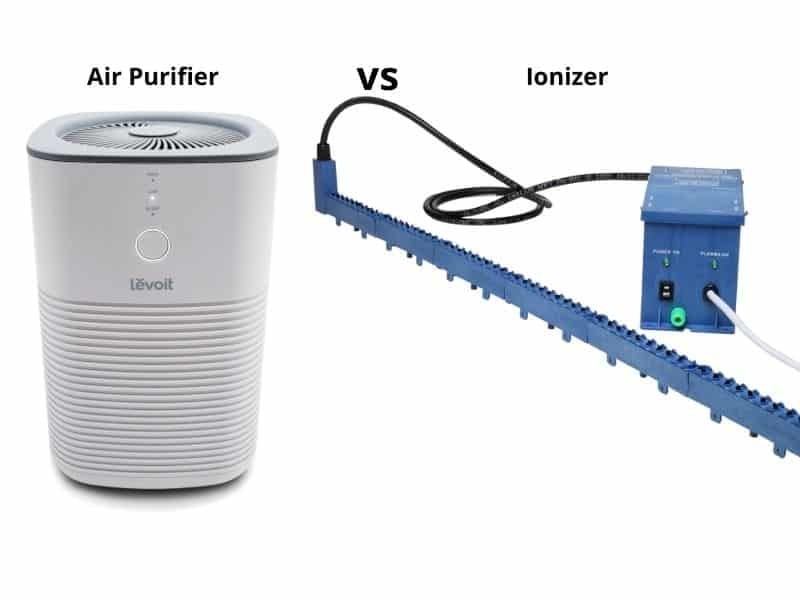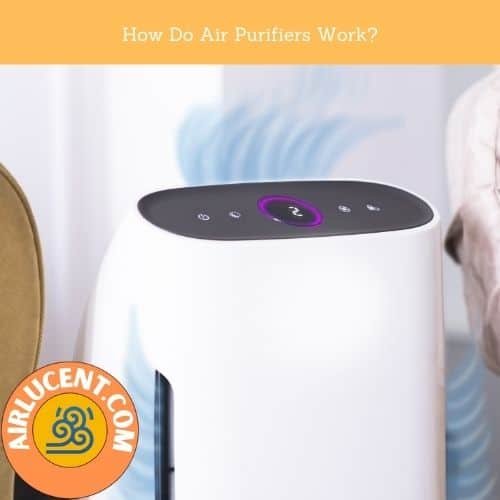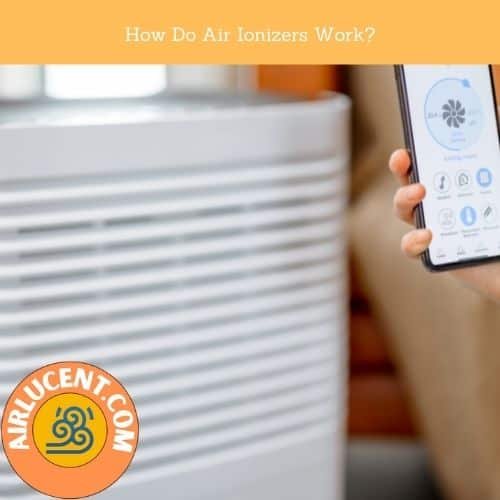Share This Guide
Everybody loves a home/building with clean air circulating all around. There are several ways of getting clean air, and one of them is using tech gadgets like air purifiers and ionizers. For several years now, these two devices have been imperative in ensuring that people get air that is free of contaminants.
Air purifiers clean the air by filtering particles such as pollen, pet dander, dust, mold spores, and asbestos using a physical filter. On the other hand, ionizers send out electrically charged ions to bond with impurities in the air. They become too heavy to float and fall to the ground for cleaning.
Even though they both do the same job, there are some key differences between the two that many people are unaware of. Therefore, to make everything clear here is a complete guide highlighting their key differences and much more.

Air Purifier vs. Ionizer: Differences
Before we get to the differences, you need to understand what these two devices are.
Air Purifier: An air purifier is a gadget that eliminates air contaminants by the use of a special filter.
Ionizer: This is a device that purifies air by electrically charging (ionizing) air molecules.
Now that you have a clear picture of what these two devices are, here is a table that highlights their differences.
| Air Purifier | Ionizer |
| Uses filters to trap contaminants in the air | Uses negatively charged ions to trap contaminants in the air |
| Removes both small and large air particles | Removes only small air particles |
| Does not produce ozone gas | Produces ozone gas |
| Is more expensive than an ionizer | Cheaper than an air purifier |
| Requires a lot of maintenance | Requires little to no maintenance |
| Remove up to 0.3 microns of particles | Remove up to 0.1 microns of particles |
| Covers up to 1,560 square feet | Covers up to 3,500 square feet |
| Many colors, styles, and designs are available | Limited colors, designs, and styles |
Here is a thorough description of each of the above differences:
Mode of Operation
How these two gadgets purify the air is different. For instance, an ionizer releases negatively charged ions into the air, and these are what bond with the unwanted particles thereby eliminating them.
Air purifiers, on the other hand, eliminate contaminants by trapping them using their filters. You should run your air purifier all the time for the best results. This is because it’ll only work when it senses impurities in the air and hence won’t waste electricity.
Scope of Contaminants
An air purifier traps and eliminates a wide scope of air impurities, regardless of the size. These include up to 99.97% of all airborne contaminants in the house.
Ionizers, on the other hand, only trap and get rid of small contaminants such as pollen grains and smoke. The negative ions produced also stop the growth of viruses while the ozone kills mold, fungi, and bacteria.
Ozone
Ionizers are known to produce ozone gas that is essential in getting rid of bad odor. However, one should be careful with this as it can be hazardous and even cause respiratory diseases. Air purifiers, on the other hand, do not produce any harmful gases.
Cost
An air purifier is more expensive than an ionizer. This is because it has a more advanced technology system that can remove air pollution completely. Levoit air purifiers are some of the best in terms of balancing the cost with the features.
You can find air ionizers for as little as $50 while the cheapest air purifier worth buying is at least $100.
Maintenance
Air purifiers require a lot of maintenance as you have to frequently replace the filters, while an ionizer only requires regular service. The filters in air purifiers such as HEPA filters require replacement or washing at least once every 6 months.
Style and design options
Air purifiers come in many colors, designs, and shapes that can match the look and feel of your house. However, ionizers mainly come in two designs which are tall and thin for the corners, or square ones for other parts of the room.
How Do Air Purifiers Work?

There are several types of air purifiers, and how they work is pretty much the same. For the sole purpose of this explanation, we will look at the HEPA purifier.
This air purifier is regarded to offer the highest air purification standard as it can capture at least 99.97% of air contaminants.
It has a fan and a tightly-packed web of woven fibers, which are used to trap the particles. The fan pulls the ambient air and passes it through the filters where filtration (capturing of particles) occurs.
The capture method depends on the size and shape of the particles. Large particles are easily trapped and removed by the surface of the filter’s web. The small particles usually escape the first layers but end up being captured by the web’s inner parts. All these particles are trapped in the filters which eventually require cleaning or replacement.
How Do Air Ionizers Work?

As earlier stated, ionizers rely heavily on the ionization process to remove contaminants and purify the air.
Basically, ionizers release anions (negatively charged ions) into the air. These anions then attract cations (positively charged ions), which are the contaminants, and then bind together with them.
When the anions combine with the contaminants/unwanted particles, they make them heavier than before. As a result, they cannot stay airborne, and they end up falling to the ground. Once they are on the floor, they can easily be swept/vacuumed up and discarded.
Which is Better – Air Purifier or Ionizer?
Between an air purifier and an ionizer, which one is better? This is one question many people ask, and it is only right that we tackle it. To do this, we need to analyze both of these gadgets’ pros and cons.
Air Purifiers
Pros
- They are highly effective in trapping and eliminating air contaminants.
- They are ideal for allergy sufferers. This is because they can remove most airborne particles that may contribute to adverse allergy reactions.
- No by-products are emitted when they are in use.
Cons
- There are instances where mold and bacteria may grow on the air purifier’s filter and get released into the same air the users breathe.
- Cover smaller areas than ionizers.
Ionizers
Pros
- Require little to no maintenance at all.
- Cover more floor area than air purifiers.
Cons
- They are less effective than air purifiers when it comes to removing dirt and dust since the ionized particles can be stirred back into the air by pets, winds, and people.
- Produce ozone gas, which is hazardous to both the environment and users.
Which is better? (Final Take)
Looking at the pros and cons of both air purifiers and ionizers, it is safe to say that air purifiers are better than ionizers. Even though mold and bacteria may grow in them, they are highly effective in trapping contaminants, ideal for allergy sufferers, and do not produce any by-products. All these are things that ionizers do not offer.
Should I Use The Ionizer On My Air Purifier?
The short answer is yes. This is because an ionizer can eliminate fine particles that a regular air purifier may not be able to.
However, this does not mean that you should get rid of the air purifier and use an ionizer. These two devices work great together, and there is no reason why you should not use an ionizer on your air purifier.
There is no doubt that both ionizers and air purifiers are great pieces of technology. Their ability to clean air wherever they are placed is truly amazing. In as much as they do the same task, they also have some key differences. All in all, they can also be used together, and when this happens, they both deliver tremendous results.
Sources:
https://www.ncbi.nlm.nih.gov/pmc/articles/PMC4587002/